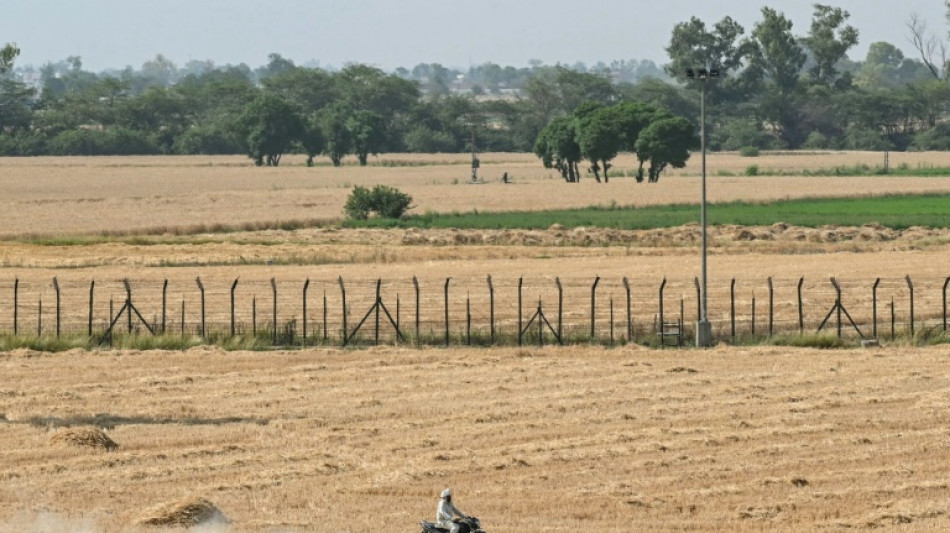
-
 Slot told Liverpool they could win the league at season start: Konate
Slot told Liverpool they could win the league at season start: Konate
-
Spain brought to a halt by huge blackout
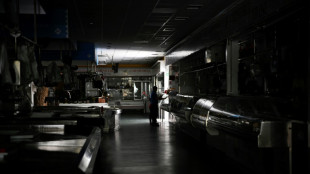
-
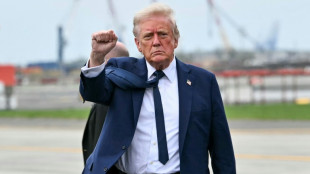 Stock markets mostly higher amid trade talk hopes
Stock markets mostly higher amid trade talk hopes
-
Conclave starts May 7, with cardinals saying new pope must tackle abuse

-
 Massive blackout hits Spain and Portugal
Massive blackout hits Spain and Portugal
-
Ruediger 'must show respect to others' says Germany boss Voeller

-
 As Canada votes, Trump pushes US takeover plan
As Canada votes, Trump pushes US takeover plan
-
Ten on trial in Paris over 2016 gunpoint robbery of Kim Kardashian

-
 African players in Europe: Salah scores, takes selfies as Reds seal title
African players in Europe: Salah scores, takes selfies as Reds seal title
-
Bangladesh spinner Taijul's 5 wickets trigger Zimbabwe collapse in 2nd Test
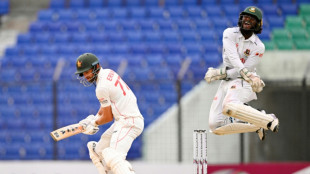
-
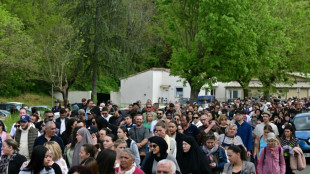 French mosque murder suspect, 21, surrenders in Italy
French mosque murder suspect, 21, surrenders in Italy
-
Mayor Khan keen for London to make Olympics history

-
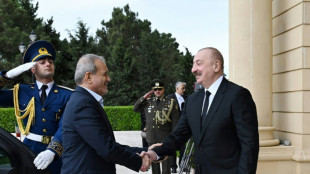 Iranian president visits Azerbaijan as ties warm
Iranian president visits Azerbaijan as ties warm
-
What we know ahead of the conclave

-
 Jannik Sinner launches foundation supporting children
Jannik Sinner launches foundation supporting children
-
Villagers on India's border with Pakistan fear war
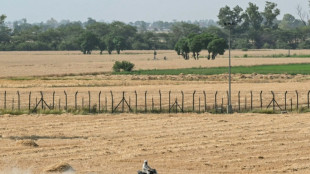
-
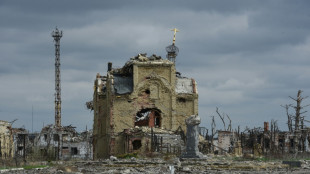 Putin announces surprise Ukraine truce for May 8-10
Putin announces surprise Ukraine truce for May 8-10
-
Conclave to elect new pope starts May 7

-
 Stock markets mostly rise amid trade talk hopes
Stock markets mostly rise amid trade talk hopes
-
India says signs deal with France for 26 Rafale fighter jets
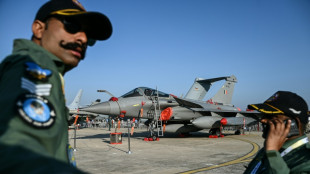
-
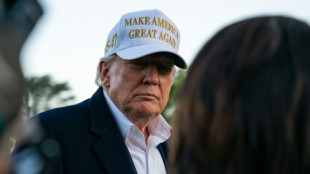 Trump's deep-sea mining order violates global norms: France
Trump's deep-sea mining order violates global norms: France
-
India Kashmir crackdown sparks anger as Pakistan tensions escalate
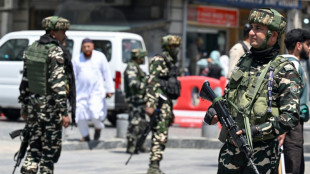
-
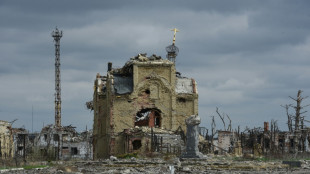 Russia says claims over annexed Ukraine regions key to peace
Russia says claims over annexed Ukraine regions key to peace
-
Austrian climber dies on Nepal mountain
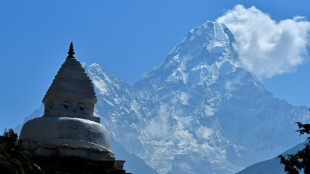
-
 Fires rage 2 days after Iran port blast killed 46
Fires rage 2 days after Iran port blast killed 46
-
Palestinian official tells ICJ Israel using aid blockage as 'weapon of war'
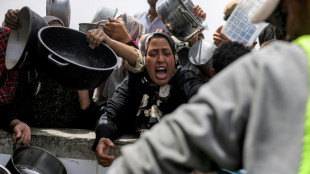
-
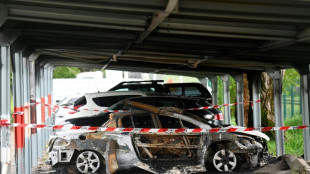 France arrests 25 in police raids after prison attacks
France arrests 25 in police raids after prison attacks
-
Kim Kardashian's next star turn is in a Paris courtroom

-
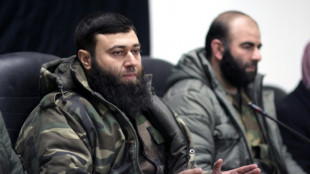 Syria group says military chief arrested in UAE
Syria group says military chief arrested in UAE
-
Anger in Indian Kashmir at demolitions and detentions
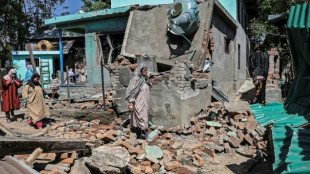
-
 Italy bank merger wave heats up as Mediobanca eyes Banca Generali
Italy bank merger wave heats up as Mediobanca eyes Banca Generali
-
Putin critic Johann Wadephul, Germany's incoming foreign minister

-
 Cardinals expected to pick conclave date to elect new pope
Cardinals expected to pick conclave date to elect new pope
-
French mosque murder suspect arrested in Italy
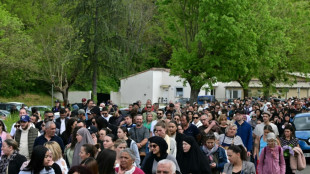
-
 China says on 'right side of history' in trade standoff with US
China says on 'right side of history' in trade standoff with US
-
Stock markets mostly rise as investors eye trade talks

-
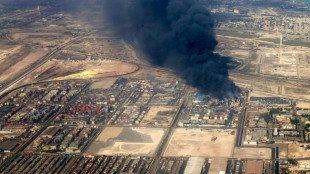 Fires rage 2 days after Iran port blast killed 40
Fires rage 2 days after Iran port blast killed 40
-
Yemen's Huthi rebel media says 68 killed in US strikes on migrant centre
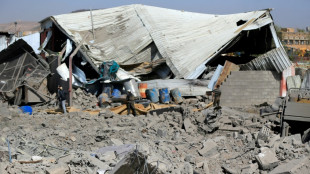
-
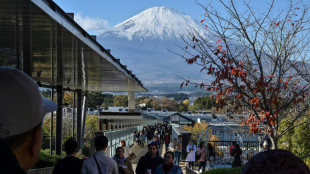 Man rescued from Mount Fuji twice in one week: reports
Man rescued from Mount Fuji twice in one week: reports
-
Canada votes for new government to take on Trump
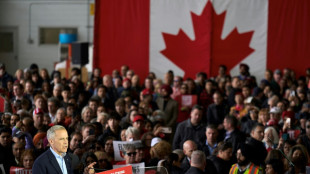
-
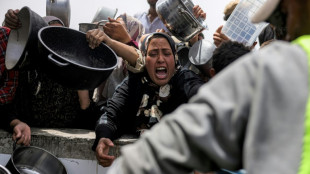 Top UN court to open hearings on Israel's aid obligation to Palestinians
Top UN court to open hearings on Israel's aid obligation to Palestinians
-
Philippines denies 'irresponsible' Chinese report on disputed reef

-
 T'Wolves win to push Lakers to brink, Celtics, Knicks and Pacers win
T'Wolves win to push Lakers to brink, Celtics, Knicks and Pacers win
-
Myanmar marks month of misery since historic quake
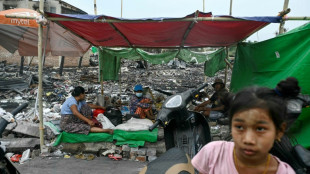
-
 South Korea's SK Telecom begins SIM card replacement after data breach
South Korea's SK Telecom begins SIM card replacement after data breach
-
Women's flag football explodes in US as 2028 Olympics beckon
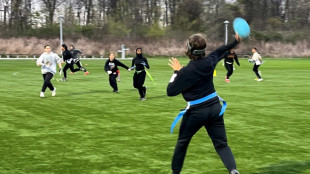
-
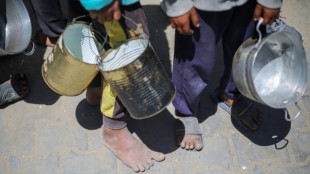 'Hunger breaks everything': desperate Gazans scramble for food
'Hunger breaks everything': desperate Gazans scramble for food
-
Suspect charged with murder in Canada car attack that killed 11
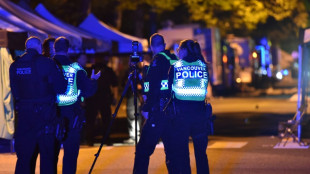
-
 Lost to history: Myanmar heritage falls victim to quake
Lost to history: Myanmar heritage falls victim to quake
-
Romania far-right rides TikTok wave in election re-run


Villagers on India's border with Pakistan fear war
India's Daoke village is fenced from Pakistan on three sides and 65-year-old resident Hardev Singh, who has lived through multiple wars between the arch-rivals, knows the drill if another erupts.
"All women, children, cattle and most younger men moved back to safe shelters in 1999 and 1971," Hardev said, referring to two of the worst outbreaks of fighting between the neighbours.
"We couldn't go to our fields," he said, adding that it was only the village's elderly men who "stayed back to ensure that our homes were not looted".
Relations between the nuclear-armed neighbours have plummeted after India accused Pakistan of backing the deadliest attack in years on civilians in Indian-administered Kashmir on April 22.
Islamabad has rejected the charge, and both countries have since exchanged gunfire across the de facto frontier in contested Kashmir, diplomatic barbs, expelled citizens and ordered the border shut.
Residents of the frontier villages in India's Punjab state say nothing has changed on the ground yet -- but there is a growing anxiety about the coming weeks.
"The barbaric attack on the civilians in Kashmir was tragic, but no matter what, the lives lost are not coming back," Hardev said.
"Any war would push both our countries back by many years, and there would be an even bigger loss of human lives."
A border fence patrolled by troops slices in two the farmlands near Daoke, home to around 1,500 people.
Gurvinder Singh, 38, recalls the last major conflict in 1999.
Fighting then took place far from Punjab -- in the icy Himalayan district of Kargil -- but the sun-baked fields around his village did not escape unscathed.
"Mines were planted on our fields, and we could not work," Gurvinder said.
He hopes that, if the bellicose statements issued by leaders on either side do turn into military action, his village will be left alone.
"We feel that the actual conflict would happen only in the Himalayas," Gurvinder said, adding that his village is "normal right now".
- 'Not just us' -
In the nearby frontier village of Rajatal, between the Indian city of Amritsar and Lahore in Pakistan, residents remember the days when the golden farmland stretched without restriction.
The frontier was a colonial creation at the violent end of British rule in 1947 which divided the sub-continent into Hindu-majority India and Muslim-majority Pakistan.
Sardar Lakha Singh's memory stretches back to before the fence was erected.
"We used to go to the open ground on the other side to graze our cattle," 77-year-old Lakha said, sitting about 100 metres (328 feet) from fences topped with barbed wire.
Farmers can obtain special passes to go close to the border, including beyond the fence but still within Indian territory.
But they must always be accompanied by a soldier.
"We can't go there whenever we want," said farmer Gurvil Singh, 65. "This reduces the time we get to work on our fields".
Panic gripped border villages last week after rumours suggested farmers would be stopped from accessing fields too close to Pakistan.
Sikh elder Sardar Lakha Singh advised younger villagers to accept their fate and not to worry.
"Whatever is going to happen will happen anyway," he said.
"We didn't know when the 1965 war suddenly started, same in 1971 when the planes suddenly started crossing the border," the grey-beared farmer added.
"So, if it happens again, we don't need to worry in advance."
Gurvinder Singh, 35, said he tried to take the lesson to heart.
"It would be a high-tech war, and not an invasion or a battle of swords like the past," he said.
"When the situation worsens, it would be for the entire country -- and not just us."
D.Kaufman--AMWN